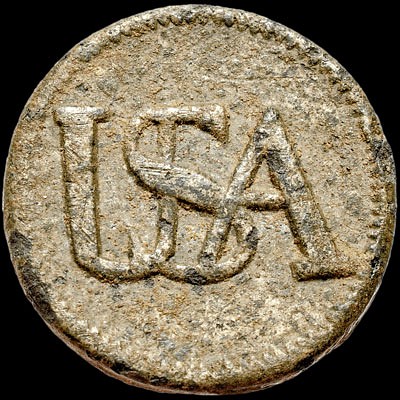c. 1799 Oliver Ellsworth Jr. European Town Watercolor Painting From his Journal
Lot 9
Estimate:
$600 - $800
Absentee vs Live bid
Two ways to bid:
- Leave a max absentee bid and the platform will bid on your behalf up to your maximum bid during the live auction.
- Bid live during the auction and your bids will be submitted real-time to the auctioneer.
Bid Increments
| Price | Bid Increment |
|---|---|
| $0 | $10 |
| $200 | $20 |
| $300 | $25 |
| $500 | $50 |
| $1,000 | $100 |
| $2,000 | $200 |
| $3,000 | $250 |
| $5,000 | $500 |
| $10,000 | $1,000 |
| $20,000 | $2,000 |
| $30,000 | $2,500 |
| $50,000 | $5,000 |
| $100,000 | $10,000 |
| $200,000 | $20,000 |
| $300,000 | $25,000 |
| $500,000 | $50,000 |
About Auction
By Early American History Auctions
Aug 21, 2021
Set Reminder
2021-08-21 12:00:00
2021-08-21 12:00:00
America/New_York
Bidsquare
Bidsquare : Autographs - Historic & Political Americana - Militaria & Guns
https://www.bidsquare.com/auctions/early-american-history-auctions/autographs---historic-political-americana---militaria-guns-7321
335 Lots of Rare, Historic Autographs, Americana, Civil War Era, George Washington, Revolutionary War Era, Colonial America, Federal Period, War of 1812, Colonial Currency & more... Early American History Auctions auctions@earlyamerican.com
335 Lots of Rare, Historic Autographs, Americana, Civil War Era, George Washington, Revolutionary War Era, Colonial America, Federal Period, War of 1812, Colonial Currency & more... Early American History Auctions auctions@earlyamerican.com
- Lot Description
Autographs
Circa 1799 Original "Folk Art" or "Novice" Style Watercolor Painting Attributed to Oliver Ellsworth, Jr.
OLIVER ELLSWORTH, Jr. (April 1781-July 4th, 1805). Graduated from Yale in 1799, accompanied his father to France on a mission to arrange a Treaty between the United States of America and France, later tutored at Yale and received an A.M. or Artium Magister (Master's) Degree in 1802.
c. 1799 Federal Period, Hand-Colored Watercolor Painting of a European Town, From the Journal of Oliver Ellsworth Jr., while on a European tour with his father Oliver Ellsworth, Sr. while Senior was the Unites States "Envoy Extraordinary and Minister Plenipotentiary to France," Choice Very Fine. This is an authentic, original approximately 4" x 6" colorful Watercolor Painting upon period laid paper, from the journal of Oliver Ellsworth Jr, circa 1799. This lovely "Naive" or"Folk Art" style Painting is said to have been accomplished while he was on a European tour with his father, Oliver Ellsworth, Sr. This particular Hand-Colored Watercolor Painting, depicts a small classic European Town, set in the distance between two massive rock or mountain formations having large green fields with clouds floating above. The perfectly clean blank reverse side is completely free of any distractions. According to the consignor, this item came directly from a group of similar items that were purchased out of the Oliver Ellsworth estate. Simply a wonderful Naive "Folk Art" style item for so many reasons and on so many levels. The history of that historic official diplomatic trip in the service of the United States is well documented. Unique and a very rare Oliver Ellsworth, Jr. original artwork.
In 1799, Oliver Ellsworth was Appointed by President John Adams as the "Envoy Extraordinary and Minister Plenipotentiary to France" on February 26th, 1799.
Tensions were running high with France, with whom the United States was engaged in an undeclared war "Quasi-War" in the Caribbean. John Adams hoped to prevent the all out outbreak of a declared war by sending Ellsworth to negotiate with Napoleon Bonaparte.
The decision to send Ellsworth was controversial, as many felt very hostile toward France at the time. Ellsworth accepted the commission without enthusiasm, deeming it necessary to prevent greater evils. Dreading the expedition, he postponed his trip for over six months, not departing for France until November 3, 1799. Harsh weather drove the ship off course, and Ellsworth did not reach Paris until March 2, 1800 - an entire four months later.
Along with Ellsworth Senior, his son Oliver Ellsworth Jr., accompanied his father as his private secretary.
Oliver Ellsworth, Sr. whose health suffered from the hardships of this journey, negotiated with Napoleon for eight months, concluding in October of 1800. The Treaty did not meet the expectations or instructions of the U.S. Envoy, but Ellsworth, himself disappointed, considered it adequate to prevent War.
Still feeling poorly, he spent the Winter in England in a futile attempt to recover his health. He finally returned to the United States in March 1801, and retired to his home in Windsor, Connecticut.
- Shipping Info
-
Early American provides in-house worldwide shipping. Please contact us directly if you have questions about your specific shipping requirements.
-
- Buyer's Premium



 EUR
EUR CAD
CAD AUD
AUD GBP
GBP MXN
MXN HKD
HKD CNY
CNY MYR
MYR SEK
SEK SGD
SGD CHF
CHF THB
THB












